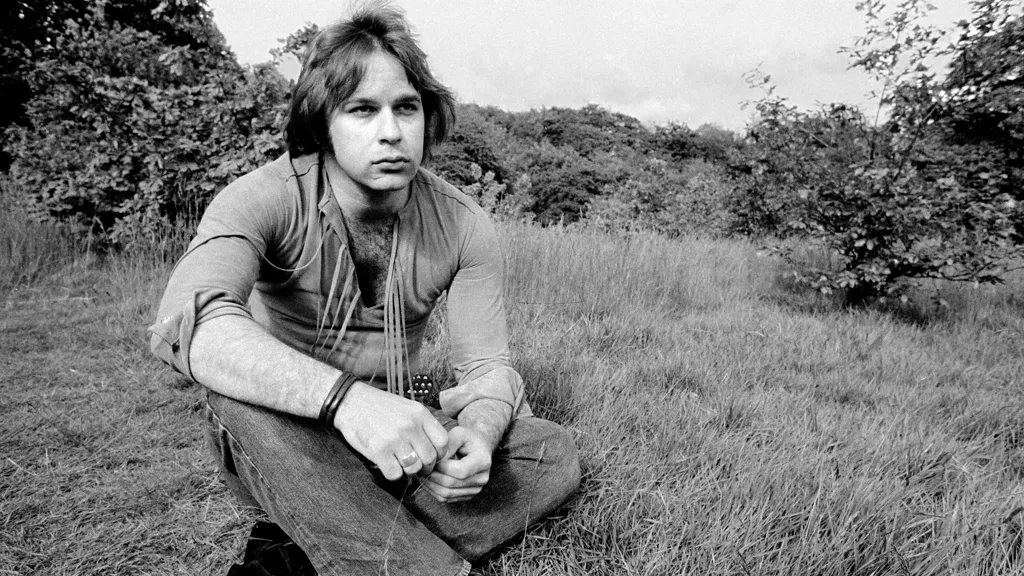A late-1960s throwback to the days of clean-cut teen idols -- he called himself "the missing link" -- he rode his gymnastic vocal range to a string of hits.
Lou Christie, who with his heartthrob persona and piercing falsetto rode high on the mid-1960s pop charts with hits like "Lightnin' Strikes" and "Two Faces Have I," while transcending teen-idol status by helping to write his own material, died on Wednesday at his home in Pittsburgh. He was 82.
His family announced the death on social media, saying only that he died "after a brief illness."
With his perky doo-wop-inflected melodies and his gymnastic vocal range, Mr. Christie was at times compared to Frankie Valli of the Four Seasons. Like Mr. Valli, Mr. Christie hit his stride as the Beatles, the Rolling Stones and the other guitar groups of the British Invasion were starting to shatter the handsome-teen-crooner archetype personified by the likes of Fabian and Frankie Avalon.
"They started disappearing," Mr. Christie once said of such singers in an interview with the site Classic Bands. "It was so interesting that I kept going. I hit the end of that whole era.
"I've always been between the cracks of rock 'n' roll, I felt. The missing link."
Even in changing times, he held his own, thanks in part to the songs he wrote with his songwriting partner, Twyla Herbert, who was two decades his senior. The songs they created together had more emotional complexity than the standard odes to puppy love.
While his debut album, released in 1963, failed to make a splash, two of the singles featured on that album climbed the charts. "The Gypsy Cried" reached No. 24 on the Billboard Hot 100 in 1963. "Two Faces Have I," a showcase for Mr. Christie's signature falsetto, climbed to No. 6 a few months later.
He logged his only chart-topper in February 1966 with "Lightnin' Strikes." Marked by a sweeping arrangement by the producer Charles Calello featuring glimmering piano, ringing church bells and radiant backing vocals from a female vocal trio, the Delicates, it sounded curiously triumphant for a song whose lyrics serve as a blanket confession from a philandering boyfriend (who nevertheless demands that his girlfriend be a gem he "can trust to the very end").
Stardom beckoned, to the point that Mr. Christie turned down roles in several beach-party movies. As he explained in a 1966 interview with the Los Angeles music magazine KRLA Beat, "I think an artist has to have some respect for himself."
Lugee Alfredo Giovanni Sacco was born on Feb. 19, 1943, in Glenwillard, a village outside Pittsburgh. He was raised on a 109-acre wooded property where his family raised chickens and pigs. He worked in his father's pizza shop as a teenager. He came of age, he told Classic Bands, in "an innocent era, a period where it really was mom and pop and the Catholic Church for me."
As a student at Moon Area High School, he studied music and voice.
He was 15 when he met Ms. Herbert, a classically trained pianist, at an audition at his church. In the KRLA Beat interview, he described her as a gypsy who looked like Lucille Ball in "I Love Lucy" and who told him that their partnership had been foreshadowed long ago. "When she was a little girl, her mother told her she'd be writing with a boy with green eyes," he said.
Songwriting had come easily, he said. He and Ms. Herbert wrote "The Gypsy Cried" in 15 minutes. "It was instinct," he said.
He eventually began performing and recording with vocal groups for local labels and adopted his stage name. After moving to New York City, he worked as a backup vocalist and began knocking on doors at record companies trying to get someone to listen to his demos. Finally, he secured a contract.
A two-year stint in the U.S. Army put his career on hold, but he made a glorious return in 1966 with "Lightnin' Strikes," followed by the No. 16 hit "Rhapsody in the Rain," about young lovers engaging in a back-seat tryst during a downpour. Its suggestive lyrics -- "And in this car our love went much too far/It was exciting as thunder" -- pushed the taste standards of the day, and the song was banned by some radio stations, forcing him to cut a cleaner version.
Mr. Christie landed several more songs in the Hot 100 during the 1960s. In October 1969, just two months after the Woodstock festival, he returned to the Top 10 with the snappy "I'm Gonna Make You Mine," with backing vocals by Lesley Gore of "It's My Party" fame.
In 1974, he released an album simply called "Lou Christie" (as his debut had been titled). A country affair, it yielded a minor hit with his twangy cover of the 1930s ditty "Beyond the Blue Horizon." He continued to tour as an oldies act and release music on small labels for years.
His survivors include his wife, Francesca, and a daughter, Bianca. A son, Christopher, died in 2014.
Mr. Christie once said that he found it a challenge to churn out hits as a self-taught songwriter who was developing his craft as he went along.
"You had to write something better than the last record,"
he told Classic Bands.
"If there's a lesson to learn, I guess it's follow your instinct and then learn the lesson."
